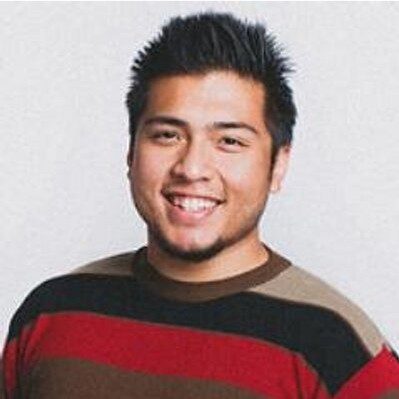
Haas Voices is a series that highlights the lived experiences of members of the Berkeley Haas community.
Janki Patel, MBA 22, is a recent Haas graduate who identifies as a first-generation, queer, Indian-American woman. In this Pride Month perspective, she shares her story of discovering and embracing her queer identity at Haas.
—
Growing up as a first generation Indian-American woman, I didn’t know anyone in my community who was queer. And as a cis-woman who is attracted to cis-men, I just thought any attraction I had to a woman was a “girl crush”. But when I started applying to business school, I realized some of my girl crushes were a bit more serious than the average girl crush. While I sometimes regret the fact that it took me so long to realize that I was queer, I am thankful that I am now closer to knowing myself fully. Every queer journey looks different and I’m sharing mine in case it helps anyone learn more about themselves, queer or not.
Business school was the first place where I felt I could be openly queer. It was also the first time I was part of a queer community. It was beautiful to belong to a community that understood a part of my identity that others did not. Though the queer community at Haas still has work to do to center the experiences of BIPOC, trans, and non-binary students, I am thankful I was welcomed into it at a time when I had more questions than answers. During my first year, three classmates shared their coming out journeys with other students for a special Story Salon. I was struck by how each coming out story differed from the next: from the moment my classmates realized they were queer to how they came out, to their loved ones’ reactions. I saw a bit of myself in all of these stories. After that event, I knew that I was getting closer to being ready to come out, but I wasn’t quite there yet.
My classes both at Haas and across the UC Berkeley campus taught me about what it means to be a kind, humane, leader and what queerness means to me. Courses such as Sustainable Capitalism in The Nordics and Managing Human Rights in Business equipped me with the tools I needed to pursue a career at the intersection of business and justice. And an African American Studies class on the novels of Toni Morrison exposed me to language I could use to speak about my queerness in a way that felt authentic to myself and that eventually gave me the confidence to come out to my immigrant parents.

My professor Daerick Scott helped me understand what I loved so much about Morrison’s novels, especially “Sula.” Sula questions society’s expectations of women throughout the novel, and her relationship with her best friend, Nel, though not explicitly sexual, is one of equal partnership and deep understanding. It’s a queer relationship. Not simply because it is between two women, but because it questions the norms of how love exists. Re-reading Sula helped me articulate to myself and to others that I am queer. Not only because I like women, but also because my attraction to people and my views on my role in a relationship do not fit into the mainstream. With that new language and the help of my closest friends at Haas, I was able to write a letter sharing how being queer has shaped my world view and share it with my parents. Although my parents have been struggling to accept what I have shared with them, they are trying. I am thankful that I am no longer hiding a core part of myself from them and luckily, I have been able to lean on my siblings and friends who have been endlessly supportive.
I came across a quote that in typical Toni Morrison fashion is incredibly eloquent:
I still write about the same thing, which is how people relate to one another and miss it or hang on to it… or are tenacious about love. About love and how to survive—not to make a living—but how to survive whole in a world where we are all of us, in some measure, victims of something. Each one of us is in some way at some moment a victim and in no position to do a thing about it. Some child is always left unpicked up at some moment. In a world like that, how does one remain whole—is it just impossible to do that?
Morrison’s distinction between surviving and making a living is one that I think about frequently, especially as I decide on next steps after Haas. Although I’m not sure where my post-Haas journey will take me (I’m hoping it’ll be somewhere at the intersection between climate and DEI), I plan to keep questioning if I am surviving or making a living. I’ll also question if I am helping others survive and remain as whole as possible. As for my queerness, I’m happily dating a cis-man and feel as queer as ever. I met my partner at a time when I wasn’t planning to date cis-men. But he helps me with my tennis serve (it’s still not great but way better!), bakes delicious lemon bars, and somehow genuinely enjoys doing dishes. All of this was a very unexpected bonus of my Haas journey.



